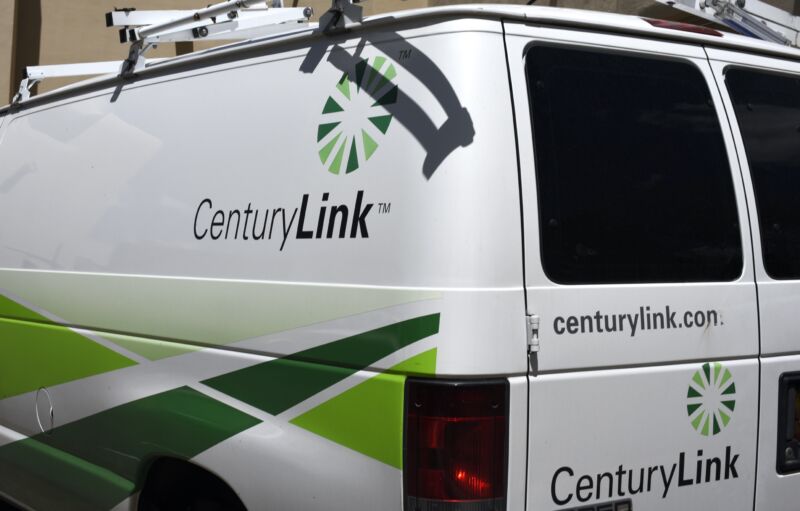CenturyLink selling copper network in 20 states instead of installing fiber

CenturyLink is selling large portions of its copper network in 20 states to a private-equity firm, letting the telco pull out of rural areas where it doesn’t plan to install fiber-to-the-home technology. CenturyLink agreed to sell the networks for $7.5 billion to Apollo Funds, a private-equity fund operated by Apollo Global Management. Apollo will also take $1.4 billion of debt off CenturyLink’s hands.
Under the deal expected to close in the second half of 2022, Apollo will acquire the CenturyLink ILEC (Incumbent Local Exchange Carrier) business in the 20 states, including “consumer, small business, wholesale, and mostly copper-served enterprise customers and assets,” a press release said yesterday. The networks in the pending sale reach seven million residences and businesses but only have 200,000 fiber-to-the-premises deployments.
CenturyLink said it will keep its ILEC networks in 16 states where it has 2.4 million fiber-to-the-premises deployments among 21 million homes and businesses, saying these networks have “significant overlap” with its “enterprise and fiber-to-the-home build opportunities.”
CenturyLink recently renamed itself “Lumen” but still uses the CenturyLink brand name for residential and small-business customers while using the Lumen brand for enterprise customers.
Homes languish on old copper lines
“On a conference call with investors, Lumen CEO Jeff Storey said that 70 percent of the markets that Lumen will retain in the deal are in urban and suburban areas and that those are the types of markets in which Lumen was most likely to invest in upgrading broadband service to its fiber-based offering known as Quantum,” Telecompetitor wrote.
In the states where CenturyLink networks are being sold, Storey said, “we knew that we were unlikely to prioritize investment in these markets ahead of our other opportunities in enterprise and Quantum fiber.” The networks in the pending sale have 1.3 million CenturyLink Internet subscribers, nearly all on copper-based DSL. About 59,000 of those subscribers are on fiber.
Apollo will also be serving CenturyLink landline phone customers. CenturyLink stopped reporting the number of telephone subscribers it has a few years ago, but the company had 10.3 million phone access lines at the end of 2017. More recently, the “voice and other” category accounted for $518 million of the $1.4 billion revenue in the company’s mass-market category in Q2 2021. Including residential and business segments, the company’s voice services made $1.5 billion of the total $4.9 billion in quarterly revenue. The rest is from consumer broadband, business IP and data services, compute and application services, and fiber infrastructure services.
Where the networks are
The networks being sold operate under the CenturyLink name and are in Alabama, Arkansas, Georgia, Illinois, Indiana, Kansas, Louisiana, Michigan, Mississippi, Missouri, New Jersey, North Carolina, Ohio, Oklahoma, Pennsylvania, South Carolina, Tennessee, Texas, Virginia, and Wisconsin.
CenturyLink/Lumen operates both ILECs and CLECs (Competitive Local Exchange Carriers), the latter of which generally lease lines from incumbents instead of deploying their own. The company will keep the CLECs in all 36 states it operates in and will keep the ILECs in Arizona, Colorado, Florida, Idaho, Iowa, Minnesota, Montana, Nebraska, Nevada, New Mexico, North Dakota, Oregon, South Dakota, Utah, Washington, and Wyoming. CenturyLink/Lumen “will retain 3.4 million broadband subscribers, including 687,000 fiber subscribers,” Telecompetitor wrote.
Apollo promises fiber upgrades
The sale could continue a long-term trend of DSL customers in rural areas being denied fiber upgrades while old copper networks fall into disrepair. CenturyLink won’t be likely to upgrade networks that it’s already agreed to sell but will continue to operate them for another year. How much fiber deployment Apollo will undertake isn’t clear, but the company said the firm’s investment “will help accelerate the upgrade to fiber optic technologies, bringing faster and more reliable Internet service to many rural markets traditionally underserved by broadband providers, while delivering best-in-class customer service.”
CenturyLink/Lumen has focused more heavily on serving large businesses in recent years, a strategy fueled in part by its 2017 acquisition of Level 3.
https://arstechnica.com/?p=1785119